
OR
Opinion
Sports to Change the Gloomy Status Quo of Girls with Disabilities
Published On: December 6, 2021 06:30 AM NPT By: Samridhi Rana and Simone Galimberti
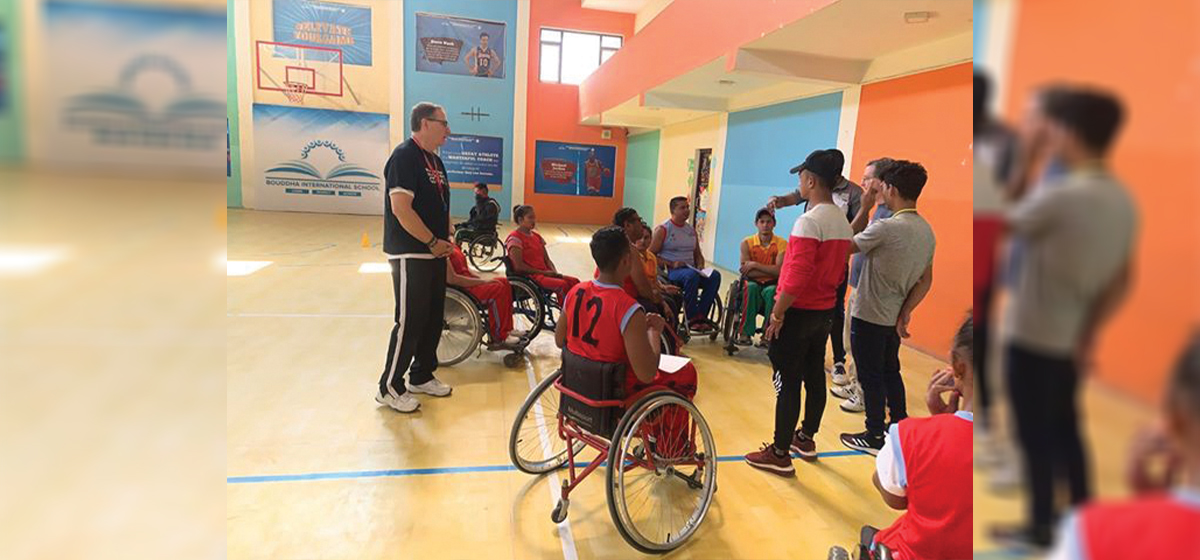

Samridhi Rana and Simone Galimberti
(Samridhi Rana is the Disability Inclusion Advisor at ICRC in Nepal. Simone Galimberti is the Co-Founder of ENGAGE.)news@myrepublica.com
More from Author
From boccia to table tennis to swimming to taekwondo to cricket, powerlifting to wheelchair basketball to mention just a few, there are a multitude of sports disciplines where adaptive athletes have been active for many years.
The pandemic has brought a lot of uncertainties and insecurities for many of us but there is one particular group, persons living with disabilities, who were among the most at risk.
Already disadvantaged in many aspects, COVID-19 has been for them a further stumbling block to fulfill and enjoy their rights as citizens.
While there are many cases where persons with disabilities do contribute to national development and are fully integrated into society, it is also true that many of them are still living precarious lives.
Income generation activities and more common jobs’ availability, coupled with better opportunities for skills enhancement and education remain the top priorities for an average youth with physical or developmental disabilities.
The problems are further compounded if this youth is a girl and experiences intersectional vulnerabilities and discrimination, for example, if she also belongs to historically disadvantaged group, lives in a remote location and has male or other siblings without disabilities in the same household.
One aspect that is often neglected but can be a powerful tool to change this gloomy status quo by promoting the rights of these young citizens and their peers, both male and female, living with disabilities is sports.
Though it does not address the issue of employability or income generation, sports playing is recognized as a universal way to create more awareness about disability rights while also offering an opportunity for persons with disabilities to shine as athletes, proving that they do belong to and have a stake in the future of this nation.
First of all, the country should be proud of many of its adaptive athletes, sportswomen and sportsmen who, despite a lot of challenges, strive for excellence day in and day out, trying to achieve new goals and pushing themselves to break new records.
From boccia to table tennis to swimming to taekwondo to cricket, powerlifting to wheelchair basketball to mention just a few, there are a multitude of sports disciplines where adaptive athletes have been active for many years.
Unfortunately, their quest for personal betterment and their overall efforts to raise the level of the games in the country got severely hampered by the pandemic with the risk of undoing whatever successes had been achieved before the first lockdown.
Wheelchair basketball plays an important role in the landscape of adaptive sports in Nepal. It is probably one of, if not the most, popular sports, a fast game that enchants the people.
Because basketball is also very popular at college levels, there is an easy way to establish a connection between the game of wheelchair basketball and all those youth who love playing basketball in the numerous basketball courts of the valley.
That’s why wheelchair basketball could even be played by everyone, not just persons living with limited or no mobility.
For example, the coach of the German national wheelchair basketball male team, Nicolai Zeltinger has been a prominent wheelchair basketball player himself before retiring and starting coaching.
Nicolai is not living with disabilities but as an able-bodied person who simply enjoyed playing wheelchair basketball competitively as the game reached professional status in Germany and in few other European nations.
Therefore there is a big potential to leverage wheelchair basketball to involve and engage more youth, both with and without disabilities because playing this game can be really fun.
This would also help bridge the gaps between disabled and able-bodied youth, creating new personal bonds, the best way to advance social inclusion and integration in society.
Yet it is not going to be easy to overcome the disruptions brought to the game (and all other adaptive sports) by the pandemic.
Athletes have not been able to train for more than a year and a half as the situation is still too precarious to restart with team sports in general even though some professional competitions are going on.
To try to alleviate this situation, we can make the best use of technologies and with a bit of creativity, we can imagine ways to promote wheelchair basketball.
This is the reason why the first Virtual Wheelchair Basketball Championship was organized by the International Committee of the Red Cross (ICRC) in Nepal in collaboration with ENGAGE.
With 11 teams involved, both representing female and male athletes, the championship showed that despite the challenges, innovation and resilience can make a difference.
It is a way not to give up on a discipline that is not only a passion but for many has been a life-saver because it helped the process of integration in society for those who acquired a disability during the armed conflict or had an accident that resulted in a spinal cord injury or amputation or for those who were born with a disability.
For some of the athletes in the championship, there is even an ambition to reach the extra mile in terms of personal excellence in the game.
That’s why coaching expertise and a full understanding of the strategies of the game are essential if we want to really elevate wheelchair basketball to the next level in Nepal and this is one of the reasons why all players in Nepal can now even learn from some of the best wheelchair basketball coaches in the world, thanks to a special virtual master class program run by the ICRC.
At a national level, the wheelchair basketball federation of Nepal has the ability to play an important role here to improve the level of sport, provide opportunities for the development of the sport and enable international level participation.
There are many challenges to promoting and advancing this game and other adaptive sports in the country but resolution, determination and long term planning can truly make a difference.
Hopefully, soon all the players will be able to be back on the real court and the game will restart.
Altogether, players, organizers and sports administrators can lay down a path for the future development of this beautiful sport.
This is what the country needs.
(Samridhi Rana is the Disability Inclusion Advisor at ICRC in Nepal. Simone Galimberti is the Co-Founder of ENGAGE.)
You May Like This

‘Surya Nepal NPGA Match Play’ starts from today
KATHMANDU, March 8: The fourth competition of the Surya Nepal Golf Tour 2021/022 season 'Surya Nepal NPGA Matchplay' has started... Read More...

Power of sports
Nepal’s teams and athletes are still the underdogs like the Raptors and Warriors many years ago. But change is possible Read More...

Sports minister KC inspects sports offices
KATHMANDU, August 1: Newly appointed Minister for Youth and Sports Rajendra Kumar KC today while inspecting the offices related to... Read More...



Just In
- CIB probe into fake DL distribution case: PMO pressures public prosecutor to free arrested govt employees
- Police report one death in Bhojpur jeep accident
- Nepal faces Bangladesh Red in int'l U-19 Volleyball Championship final
- Nepal Investment Summit: Two organizations sign MoU for PPP cooperation
- Sita Air flight to Ramechhap returns to Kathmandu due to hydraulics issue
- Man found dead in Dhanusha
- Gold prices decreases by Rs 400 per tola
- Ilam-2 by-election: UML candidate Nembang secures over 11,000 votes



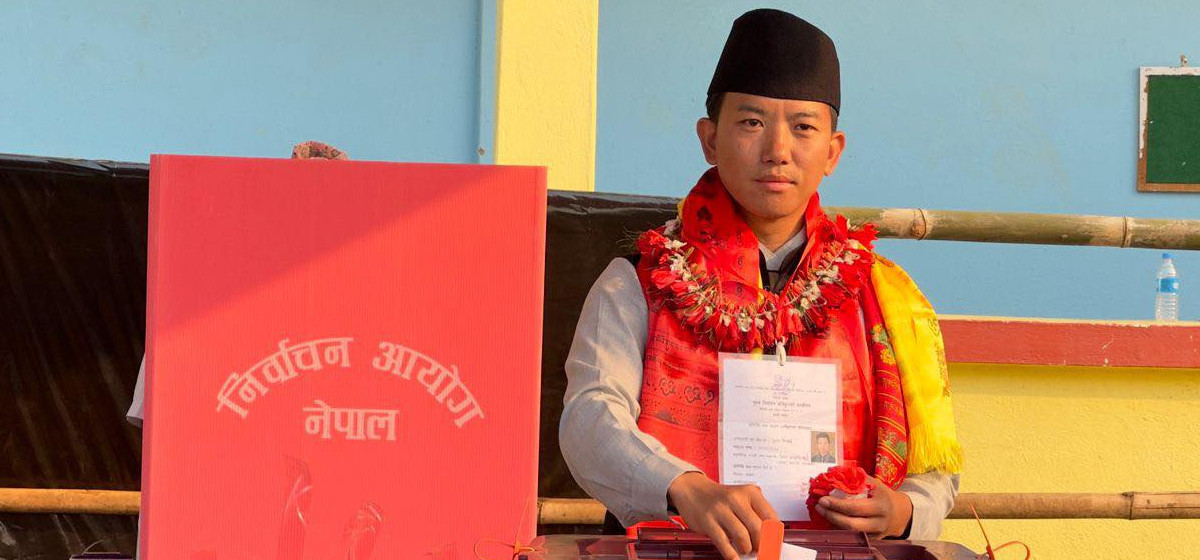

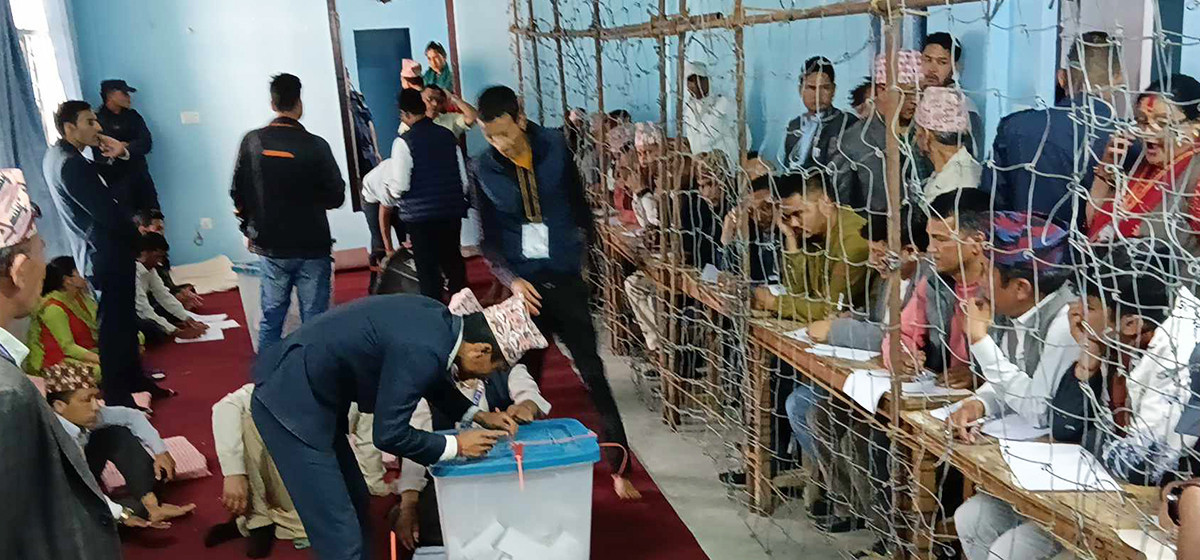
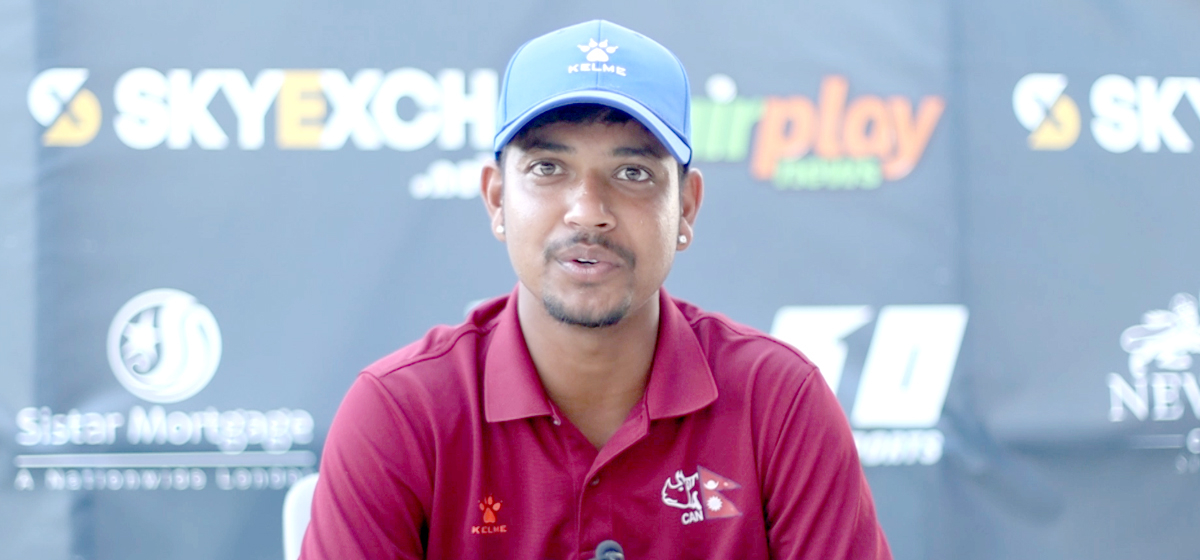

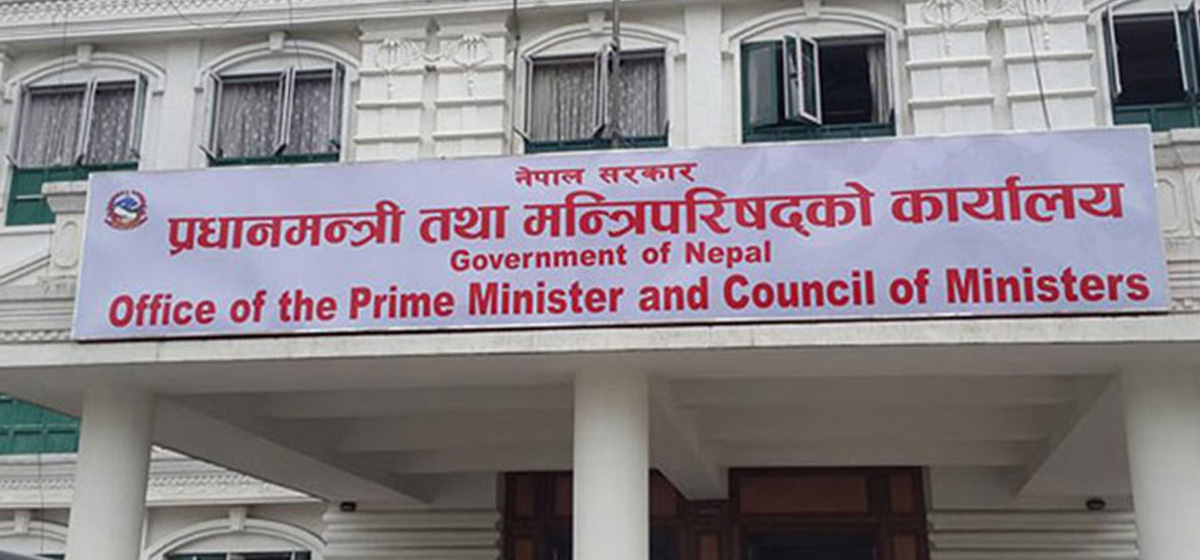


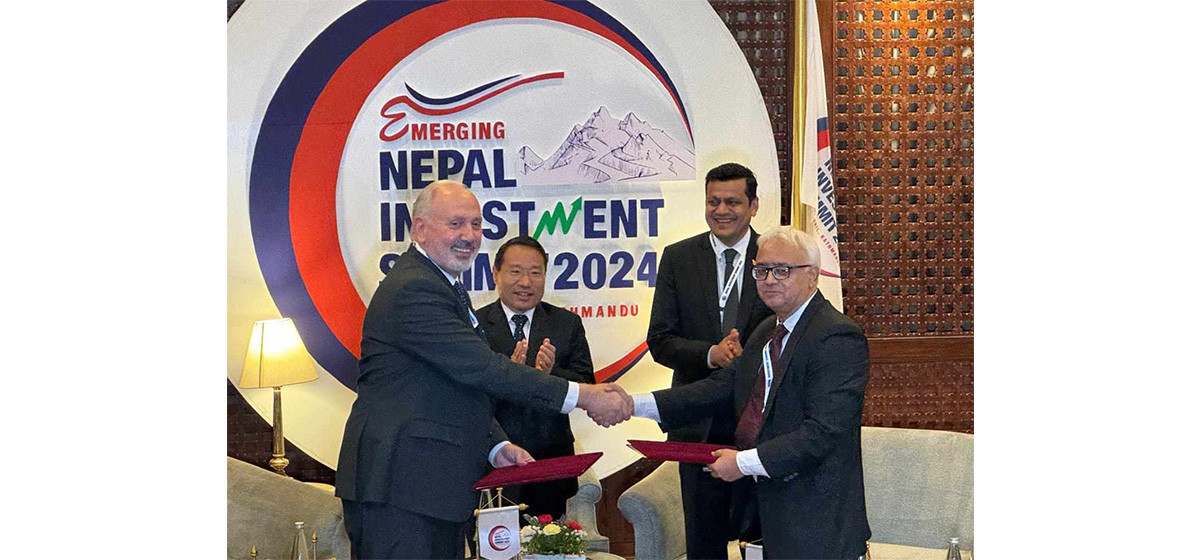

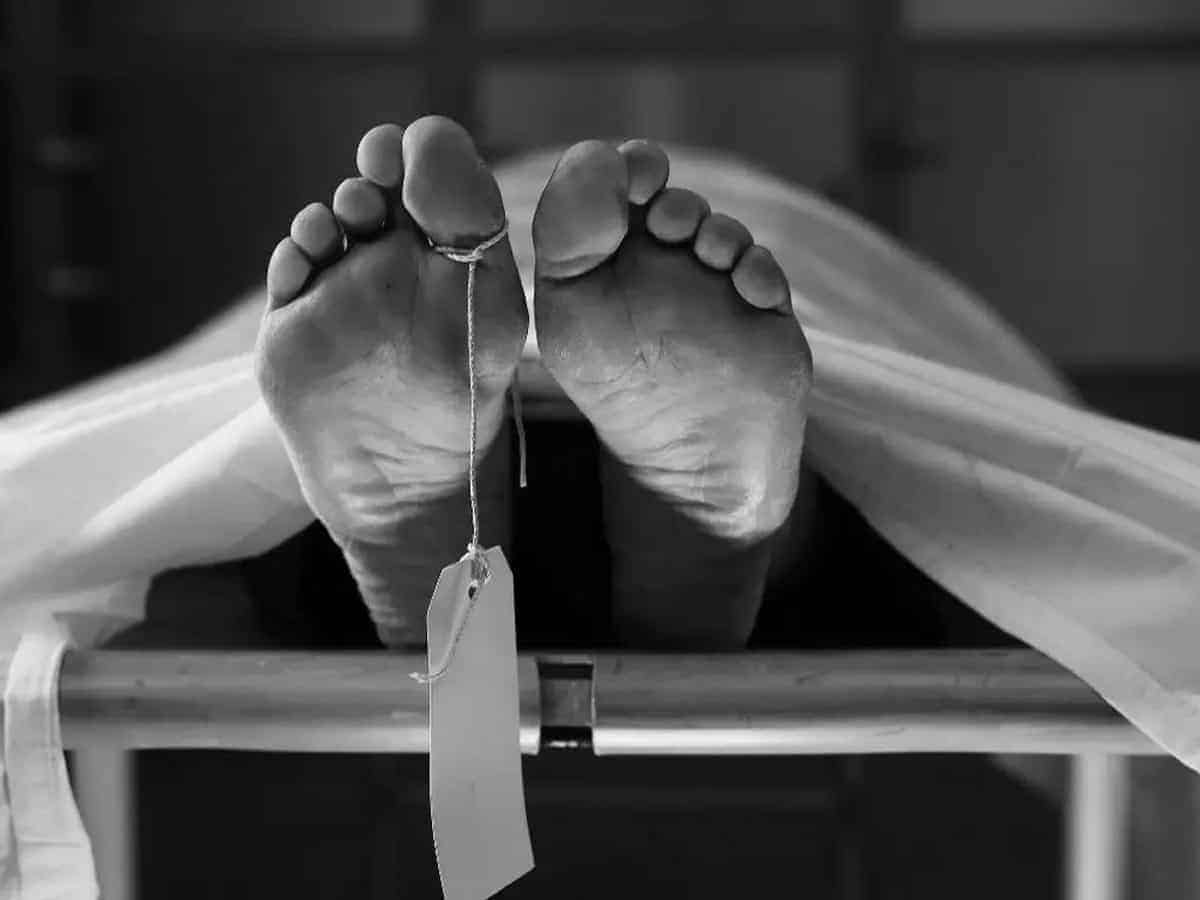

Leave A Comment